Implementing AI in your real estate business
- Assess your business needs and identify goals
- Evaluate AI-powered real estate solutions
- Train your AI solutions
- Integrate your AI with existing business tools
- Test, deploy, and monitor your real estate AI tools
Imagine this, real estate agents: You begin the day by reviewing a personalized market report that highlights your most promising warm leads, shows which properties are about to hit the market, and offers pitching strategies for each of your listings. While you peruse this information, your AI tools draft listings for new properties, schedule showings, and respond to frequently asked questions from prospects.
For many real estate agents, this is a reality — not some far-off futuristic scenario. With the right AI tools in your corner, you too can enhance your productivity, gain access to valuable data, and better serve your clients.
AI is one of the most powerful tools in your toolkit. It can automate time-consuming tasks, like responding to emails, and uncover market insights that take your business to the next level. The best part is you don’t need to be a tech wizard to use AI. Many AI tools are highly intuitive and user-friendly, making adoption a breeze.
In this article, we’ll explore how you can use AI in real estate, sharing tips for implementation and offering a breakdown of the advantages and drawbacks of using real estate AI tools. Plus, we’ll introduce you to Jotform AI Agents, a leading artificial intelligence solution that enables you to offer high-quality customer service at scale. Whether you’re a solo agent looking to grow your business or part of a larger brokerage working to stay competitive, you’ll learn the ins and outs of AI in real estate in this helpful guide.
What is AI and how does it work in real estate?
Artificial intelligence, or AI, is a type of technology that can learn, problem-solve, and reason. Within real estate, AI tools can complete a wide range of tasks, from answering client questions and gathering information about leads to conducting property valuations and analyzing data for market insights. Using artificial intelligence in real estate, agents can enhance productivity, make data-driven decisions, and convert more leads.
With their ability to mimic human intelligence, AI tools can perform tasks with or without human intervention. AI’s core capabilities include data analysis, predictive modeling, and automation, which make it valuable in the real estate industry. Artificial intelligence can analyze vast quantities of information within seconds and derive insights from that data to support users.
Common real estate AI tools include chatbots, property analysis tools, market forecasting tools, meeting schedulers, content generators, and lead-nurturing solutions. AI helps remove the burden of administrative or time-consuming tasks, leaving real estate agents with more time to focus on enhancing client experiences.
Real estate agents use AI in several different ways. Danielle Rosetti, Broker-in-Charge at Better Homes and Gardens Real Estate Native American Group in Elizabeth City, North Carolina, uses AI daily in both her personal workflow and for brokerage operations:
On the company side, our systems leverage AI to call, text, and transfer leads directly from our database, ensuring faster connection times and higher conversion rates. Personally, I use AI to sort and prioritize emails, and I often generate draft templates for responses that save me hours each week.
I’ve also built custom GPTs to streamline my business. One is trained on real estate regulations and processes for North Carolina and Virginia (where I’m licensed), so if I have a compliance or contract question, I can get a quick, reliable starting point. Another GPT takes market reports and converts them into plain-language summaries, which are perfect for giving consumers clear insights into what’s happening in their area without the jargon.
Implementing AI in your real estate business
Adopting AI-powered real estate solutions in your business can completely change the way you operate and how you interact with leads and clients.
However, it’s not as simple as just choosing a tool and putting it to work — not if you want long-term success. Strategic implementation of AI is the key for real estate agents who want to experience the full benefits of artificial intelligence.
Here are five key steps to follow when implementing AI in your real estate business:
1. Assess your business needs and identify goals
Before you even look at the tools available, evaluate your business needs and determine how AI solutions can help you in your work. Start by outlining the tasks in your day-to-day schedule and thinking about how you approach them. Are there certain types of repetitive tasks that take up an inordinate amount of time? Those may be tasks that could be relegated to AI tools.
Here are some tasks that real estate AI tools can support you with:
- Lead generation and follow-up: AI can help you find and qualify leads for your business, saving you hours on cold outreach.
- Market research and property analysis: Instead of relying on intuition or outdated competitive information, use AI to analyze vast amounts of data and derive up-to-the-minute market insights.
- Client communication and scheduling: Administrative tasks, while important to operations, can be completed by AI, leaving you more time to focus on client showings.
- Marketing: Email newsletters, social media posts, and market listings are just some of the marketing materials you can create using real estate AI tools.
Now, identify goals you want to achieve with the AI technology based on the needs you uncovered in this step. You might want to increase productivity to take on more clients, for example, or maybe you’d like to enhance client satisfaction by improving your competitive analyses.
2. Evaluate AI-powered real estate solutions
Once you’ve determined how AI can best help in your real estate business, it’s time to evaluate the solutions available. It’s easy to get drawn in by the latest shiny tool, but it’s important to investigate options more deeply to ensure your technology choice is aligned with your business needs and goals.
Some common AI tools available for real estate include:
- AI-powered chatbots: Software that’s designed to simulate human conversations is great for answering client FAQs, capturing lead information, qualifying leads, and triaging leads.
- Content generation tools: Use these tools to create marketing content like social media posts and property listings.
- Predictive analytics technology: This type of solution can help you analyze market data, predict property values, and identify investment opportunities.
- Workflow automation solutions: These tools can handle administrative tasks like sending email follow-ups and scheduling showings with clients.
- Operations tools: If you need help with property management or tenant management, AI-powered solutions can enhance your productivity.
Select one or more tools that can help you meet the goals you identified earlier.
Rosetti uses many AI tools in her work, including Jotform. “For my clients,” she says, “I use AI in a very practical way: I upload contracts into Jotform and then use AI to break them down into simple explanations so my clients always know exactly what they’re signing. I take those explanations and put each form separately into a Highnote presentation so clients can access them on demand whenever they need a refresher.”
3. Train your AI solutions
The beauty of artificial intelligence tools is that you can customize them based on the needs of your real estate business.
Train the tools using your company website, FAQs, employee handbook, processes, and workflows. Think of this step like onboarding your tool, which will act almost as a new employee. Everything your employee needs to know, your AI tool needs to know too.
Training your AI might seem like an intimidating concept at first. But with tools like Jotform AI Agents, training simply involves uploading relevant documents to the AI and then watching it learn. (More on that process to come!)
4. Integrate your AI with existing business tools
To get the most out of your real estate AI tool, integrate it with your existing software solutions. For example, you may want to integrate a lead generation tool with your email marketing software so that it can share contact information seamlessly.
Similarly, you can integrate an AI scheduling automation tool with your customer relationship management (CRM) system so it can access relevant details for leads. An AI property management tool may be more effective if it has access to CRM data as well.
AI solutions should operate as part of your full ecosystem of business tools.
5. Test, deploy, and monitor your real estate AI tools
Be sure to carefully test your AI tool to ensure it provides accurate and reliable results. Without proper testing, you could end up making things more difficult for yourself and your clients. For instance, if your automated scheduling tool is double-booking clients, you’re going to need to make some changes quickly.
Once tested and deployed, continuously monitor the AI tools’ performance. Many AI solutions learn from previous experience and interactions, so their performance may change over time. Continue to make adjustments as needed to get the best results for your business.
Pros and cons of AI applications in real estate
Before adopting any new technology, it’s always wise to weigh the benefits and drawbacks of a tool, as they may impact your business.
For Rosetti, the impact of AI has been surprising:
It has given me leverage in ways I didn’t expect. It’s allowed me to create and implement procedures that streamline my business, cut down on repetitive tasks, and open up new ideas I hadn’t considered before. It’s like having a brainstorming partner that’s available 24-7.
The biggest benefit is time. I can spend more time on what matters most — building relationships with clients, training agents, and growing our brokerage — because AI takes care of the busy work behind the scenes.
Other major benefits of using AI in real estate include
- Enhanced efficiency: When it comes to speed, the human brain simply cannot compete with AI. AI can analyze vast amounts of data, generate content, and complete administrative tasks in seconds. This frees up real estate agents to focus on more human-centered tasks, like taking clients to showings.
- Improved decision-making: Relying on your gut instincts isn’t enough in the competitive world of real estate. You’ve got to be able to back up your feelings with data. Artificial intelligence in real estate gives you the ability to derive insights from data for more informed decisions.
- Higher client satisfaction: The ability to reply to clients within seconds and provide them with data-driven insights is essential for real estate agents who want to stand out. You can surprise and delight your clients with impeccable service when you use AI tools in your business.
It’s also important to acknowledge the disadvantages of AI tools. Be sure to go in with all the facts.
“The main drawback is trust,” says Rosetti. “AI is powerful, but it’s not perfect. You absolutely have to fact-check, especially when you’re asking for data or compliance-related information. Many AI programs are designed to ‘fill in the blanks,’ and if you’re not careful, they can give you something that sounds right but isn’t accurate. My rule of thumb is, if I’m using AI for facts, I always trace it back to the source before relying on it.”
Other drawbacks of using AI in real estate include
- High initial investment: Some AI solutions cost a pretty penny, so you’ve got to determine if the advantages they offer are worth the price. Keep in mind, however, that not all AI tools are expensive. Most offer plans at different pricing tiers, many of which are quite affordable, even for smaller brokerages. Some solutions, like Jotform AI Agents, offer free plans as well.
- Data privacy concerns: Your data — and your clients’ data — must be kept safe at all times. If you don’t know how an AI tool uses your data, it’s best to go with a different option. Review data privacy and security protocols to make sure the technology you choose prioritizes the safety of your information.
- Potential job displacement: There is a fear that artificial intelligence tools will displace human workers. While that may be the case in some workplaces, it’s more likely in real estate that AI will free up agents for more human-centered and strategic tasks, leaving them with fewer administrative and mundane tasks to handle.
Jotform AI Agents: Easing customer relations in real estate
There are many artificial intelligence tools available to help you meet your goals. If you’re looking to enhance your customer relations and impress leads at the first interaction, one tool that really stands out is Jotform AI Agents.
One of the best AI tools for real estate agents around, Jotform’s AI assistants are designed to transform property-related data collection and client interactions through intelligent online forms and conversations.
You can train the AI Agent with your data so it understands the ins and outs of your real estate business and acts as an extension of your team. Jotform even lets you customize the AI avatar so you can give your customers a human-like experience when they interact with the agent.
These sophisticated AI Agents streamline your real estate operations by automating a number of administrative tasks, like responding to property inquiries, helping leads complete tenant applications, and asking users to fill out market analysis surveys.
Best of all, Jotform is a no-code application. There is no need for any technical experience using or creating AI solutions. Plus, you don’t have to create an AI Agent from scratch, though that option is always available. Jotform offers thousands of ready-to-use AI Agent templates, many of which are specialized for the real estate industry. The following examples are just a few of the many options:
- Real Estate Consultant AI Agent: Use the Real Estate Consultant AI Agent to assist buyers, sellers, and renters by guiding them through property searches, inquiries, and appointment scheduling with AI-powered conversations.
- Home Loan Application AI Agent: Guide potential homebuyers through the loan application process, collecting essential information and answering queries for a smooth experience, with the Home Loan Application AI Agent.
- Residential Rental Application AI Agent: The Residential Rental Application AI Agent takes on the job of engaging with potential tenants through conversational AI, collecting essential details to simplify the rental application process.
Jotform AI Agents help you enhance efficiency and improve client satisfaction. Plus, they’re free to use, so there’s nothing standing in the way of implementing AI-powered tools in your real estate business.
Key AI real estate trends to watch and consider
Real estate agents who want to be front-runners in their industry need to understand how AI will transform the way we live and work in the spaces around us.
AI is just beginning to impact the real estate industry, so it’s likely we haven’t seen everything it has to offer yet. What’s next for AI in real estate? There are several key areas where you’ll see advancements:
- Sustainability: This buzzword reaches far beyond real estate — and it’s here to stay as clients are actively looking for greener properties. AI systems may be used to optimize energy within buildings, based on factors like time of day, occupancy, and weather. It could also be used for predictive maintenance to ensure operational efficiency.
- Hyperpersonalization: According to Rosetti, this is the next big wave. Real estate agents will soon be “using AI to tailor property recommendations, communication styles, and even marketing campaigns to each client’s preferences automatically.” With the help of AI, real estate agents will be able to deliver concierge-level service to their clients.
- Smart cities: Real estate agents may use AI to understand transportation patterns, land use, population density, and other aspects when choosing listings. This data on city infrastructure will give clients a clearer understanding of their properties and how they could change in the coming years.
Is your real estate business ready for AI?
AI is already transforming how real estate agents work and interact with their clients. Adopting AI in your real estate business can help you make data-driven decisions, enhance your client relationships, and have more productive days. The sooner you integrate AI into your processes, the sooner you’ll be able to improve your overall performance.
Keep in mind that new technologies don’t have to be intimidating or overwhelming. With tools like Jotform AI Agents, you don’t need to be a tech expert to create your own custom AI tools to support your needs. Whether you want to improve lead generation, property analysis, or client scheduling, you can do it all with Jotform by your side. Simply select an AI Agent template, train it with your data, and then watch it elevate your real estate business.
The real estate industry is ultimately about building relationships with your clients. Real estate AI tools give you the time, energy, and power to focus on serving your clients more effectively. Give Jotform AI Agents a try today, and see how they can transform your real estate business.
This article is for real estate agents, brokers, and property managers who want to work smarter by using AI to streamline daily operations, boost client satisfaction, and make data-driven decisions.






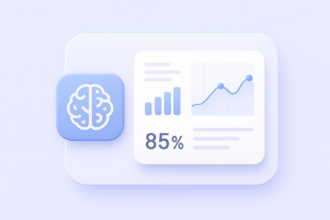



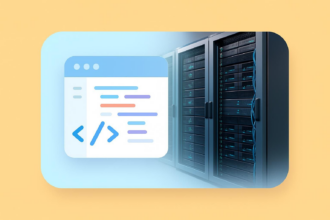




















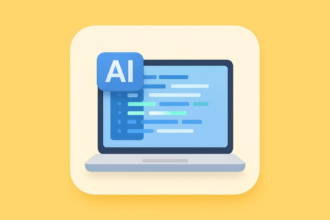










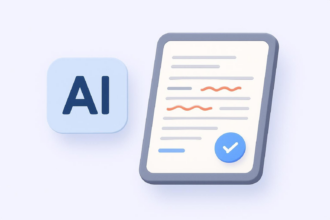



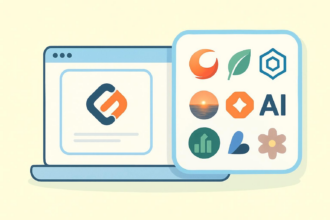










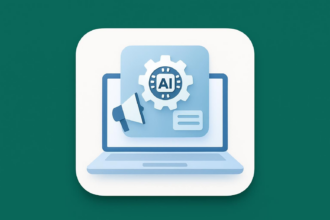


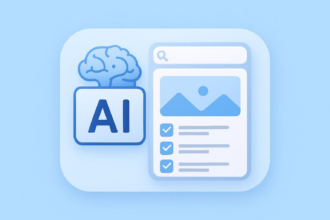



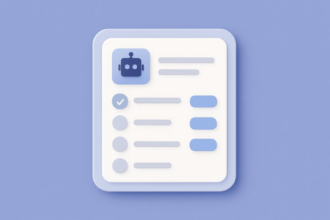























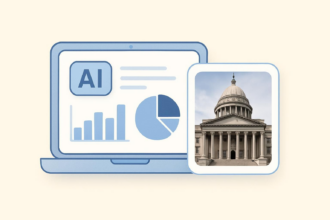














Send Comment: